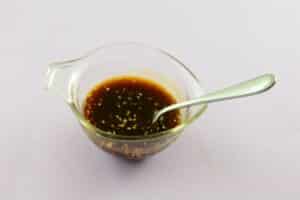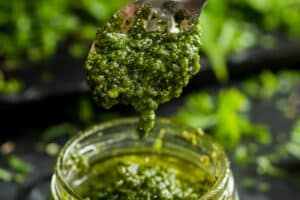You want to impress your visitors with your skills in the kitchen, but you just realized that your mashed potatoes came out watery rather than creamy and thick. Don’t worry! You can quickly thicken mashed potatoes using any of our eight methods.
The best part is that most of these methods don’t alter the flavor of your delectable mashed potatoes. They just thicken the texture to make them less watery. Many of them require no additional ingredients — all it takes is to learn the proper technique.
The most common ways to make mashed potatoes thicker:
- Add thickening agents
- Simmer the potatoes
- Add dehydrated potatoes
- Heat them in a microwave
- A quick bake in the oven
- Add more potatoes
- Strain the runny mashed potatoes
- Add cheese
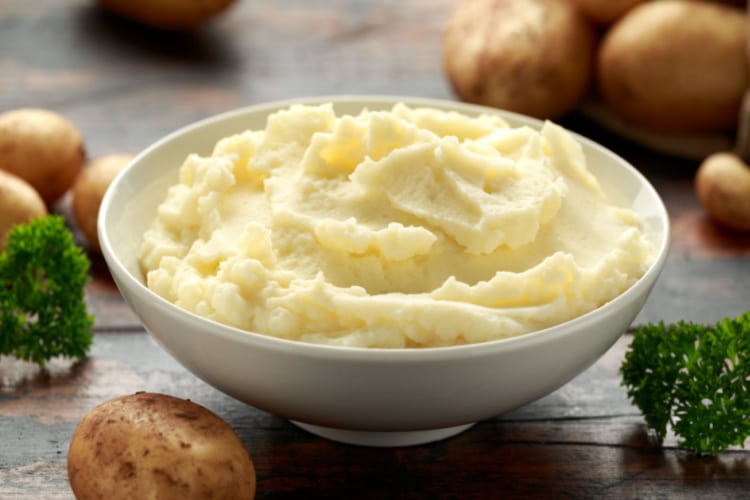
1. Add Thickening Agents Like Cornstarch or Powdered Milk
If your mashed potatoes is too watery, you may rapidly thicken it using cornstarch or powdered milk.
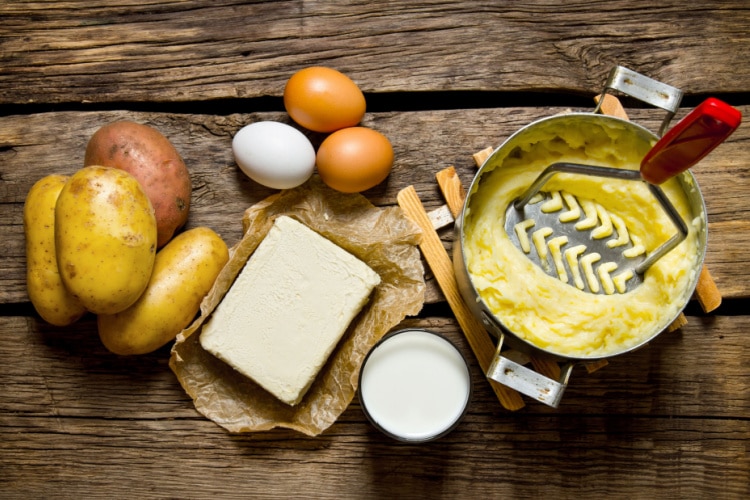
Since corn starch doesn’t affect the flavor of the potatoes, it’s a terrific ingredient to have in our cupboards. Another alternative is milk powder.
Add 1 tablespoon of powdered milk or cornstarch to your runny potatoes and stir over low heat until you reach the desired consistency.
2. Simmer the Potatoes
A quick simmer can do wonders for the consistency of your mash. All you need to do is whisk the mashed potatoes in a saucepan over medium-high heat for a few minutes.
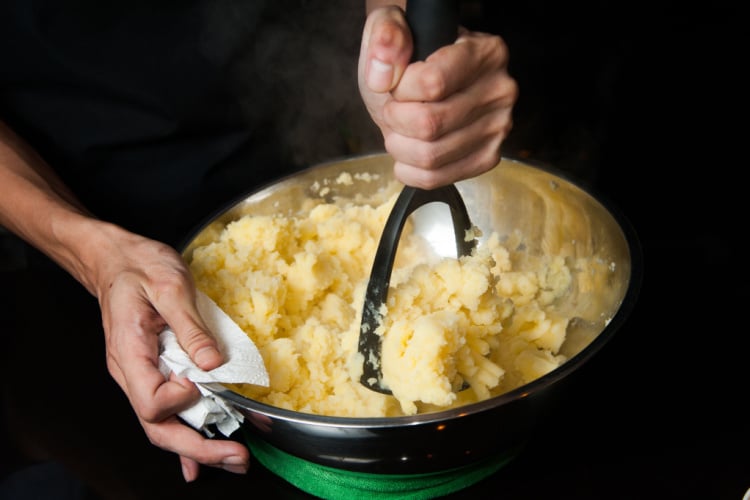
But don’t whisk with a spoon or ladle — a fork is the best choice as it prevents excessive stirring and hastens the evaporation of extra liquid or moisture. Also, avoid over stirring because it can ruin the texture and make it too sticky or gluey. Don’t cover the pan so as to allow the steam to evaporate.
3. Add Dehydrated Potatoes
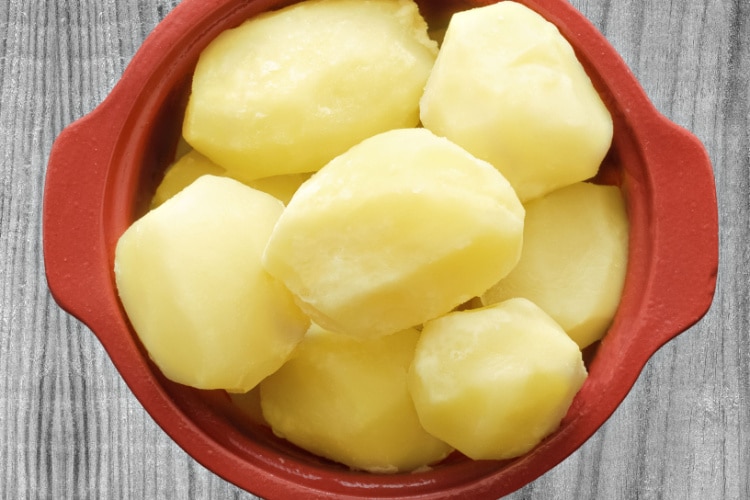
Did you know you can thicken potatoes with potatoes? If you have dehydrated potatoes on hand, incorporate them into the mashed potatoes one spoonful at a time. They’re perfect for soaking up excess water. Not only can they thicken the dish, but they add a smooth, delectable taste.
4. Heat Them in a Microwave
If you’re in a hurry, you can thicken runny mashed potatoes in the microwave.
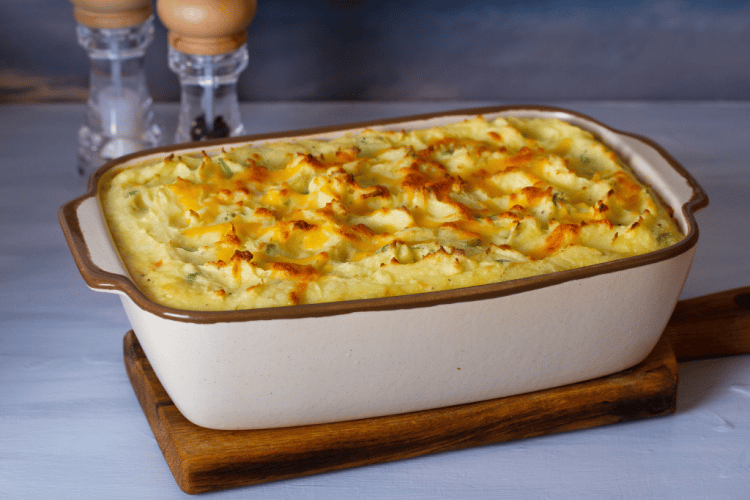
In a microwave-safe container, microwave the potatoes for one minute on high heat. Give the potatoes a little toss after one minute.
Heat the potatoes again for a minute, then check to see if they need to thicken further. Continue until you get the desired consistency. Make sure the dish is not covered to allow the excess moisture to escape.
5. Bake Them in The Oven
The oven may also come in handy in thickening mashed potatoes. Set the oven to 300°F and place the potatoes in either a baking dish or casserole. Don’t cover them, so the moisture can evaporate rather than circulate in the pan.

Bake them for 15 minutes, test the consistency, and give them a little toss. If necessary, feel free to return the potatoes to the oven for 5 to 10 minutes.
6. Include More Potatoes
Do you have extra potatoes? They might save the day.
One or two potatoes should be plenty — you don’t need to cook an entire batch. The potatoes should be boiled and mashed. You can also use frozen ones, but you will have to wait for them to thaw.
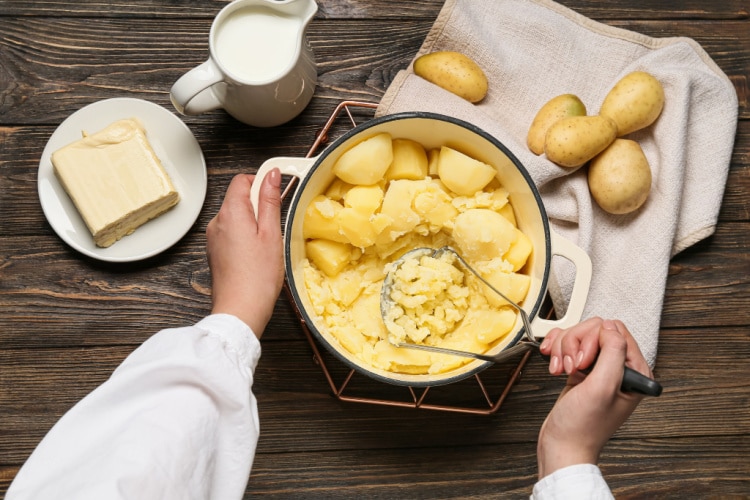
Make sure to taste the dish once you add new ones to the mix. Add more seasoning if necessary.
You can reheat the dish on medium heat. Simmering will evaporate the remaining moisture and thicken the mash.
7. Strain the Runny Mashed Potatoes
Straining is another method that works well to thicken sloppy mashed potatoes.
You’ll need a strainer and a cheesecloth for this method. Just put the mash into the sieve and cover it with the cheesecloth. Roll the cheesecloth into a ball and gather the ends. Gently squeeze the moisture out, then drain for roughly one hour.
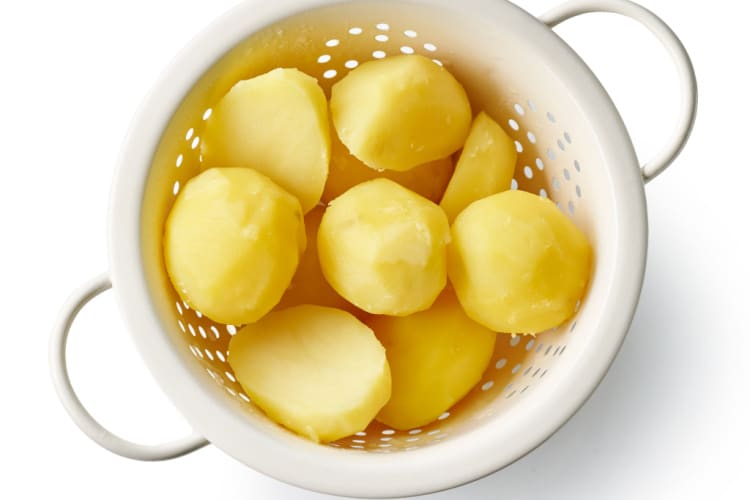
Reheating the mashed potatoes is a good idea as well. That is something you can do in the microwave, oven, or on the stovetop. The extra moisture will evaporate, and you can serve it hot.
8. Add Cheese
Do you want to take your mashed potatoes to the next level? Add cheese — the harder, the better — and see how the texture and flavor improve.
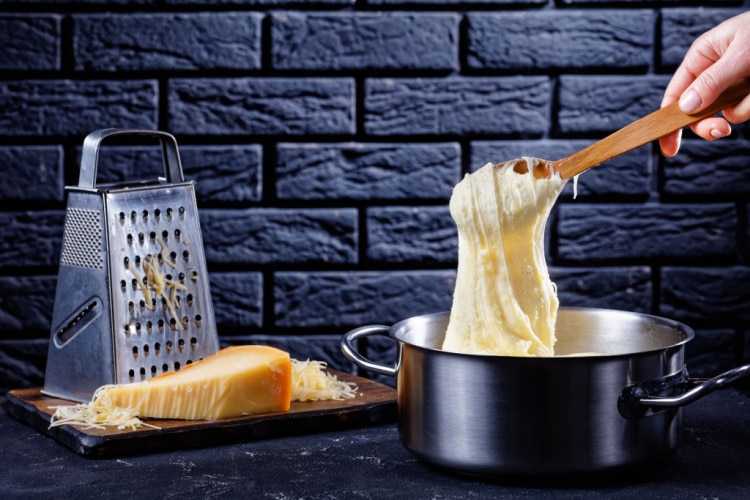
Parmesan, cheddar, or pecorino cheese are all suitable choices. Just watch the quantity; you don’t want the potatoes to get overly cheesy. If you want the texture to be thick yet smooth, finely grate the cheese beforehand.
Let the mash simmer over medium heat. Start small and whisk the pan as you add cheese. Cook your dish for a few minutes or until the cheese melts and blends with the potatoes.
Mashed Potatoes Mistakes & How to Fix Them
We all make mistakes, but learning from them is the key to becoming a successful cook. Here are some red flags to look out for and tips to keep in mind.
- Don’t use waxy red potatoes since they’ll make your mash gluey. It’s best to use thick-skinned varieties like Russets or Yukon Gold.
- If you want a fluffy mash, don’t cut your potatoes too small. Thinly cut potatoes will absorb too much water during cooking. 1 ½ inch pieces are best for boiling.
- Don’t add potatoes to boiling water, or you might have a lumpy mash. Put potatoes in cold water and bring them to a boil.
- Don’t use cold butter because it inhibits absorption. Make sure the butter is at room temperature before you add it to the mixture. The same goes for milk and cream. You can warm liquids in a pan before you add them to the mix.
We don’t recommend using a food processor. Doing so will over-mash them and make them super gluey. Instead, use a masher, fork, ricer, or food mill.
Spending a couple more minutes on these minor (yet crucial) steps ensures a fluffy and delicious mash.
Frequently Asked Questions
It is not recommended to use raw flour unless you have no other choice. When cooked, raw wheat gelatinizes, changing the taste of the dish substantially. The consistency can be lumpy as well.
There is nothing wrong with overdone potatoes; you can still eat them. However, they soak up a lot of water and turn into a soupy mess when mashed. As a solution, you can cook them a bit more in an uncovered pan over low heat, stirring gently. The extra water will evaporate, and your mash will be less watery.
To thicken instant mashed potatoes, add a thickening agent like cornstarch or powdered milk. Add one tablespoon at a time, and don’t stop mashing until the mash reaches a good consistency.
You can even strain the mash with a cheesecloth to remove the excess moisture. Feel free to add cheese as well, for instance, parmesan. If you are in a hurry, put the dish in a microwave on high and check after a minute to see if the mash has improved.
Conclusion
Hopefully, these tips will help you make your potato mash fluffy and thick.
Try some of our recommendations; some will just take a few minutes. Simmering or microwaving them, for example, is a good place to start if you can’t decide what you want to try first. Baking also works well, although it takes a little longer to achieve a thick consistency.
Thickening agents can also help you make a fluffy mash. You probably already have cornstarch or powdered milk on the shelf, but if you don’t have either, you may add extra potatoes (dried or boiled) to fix the consistency. Cheese is a tasty thickening agent as well.
Finally, use Russet or Yukon Gold varieties for best results.



